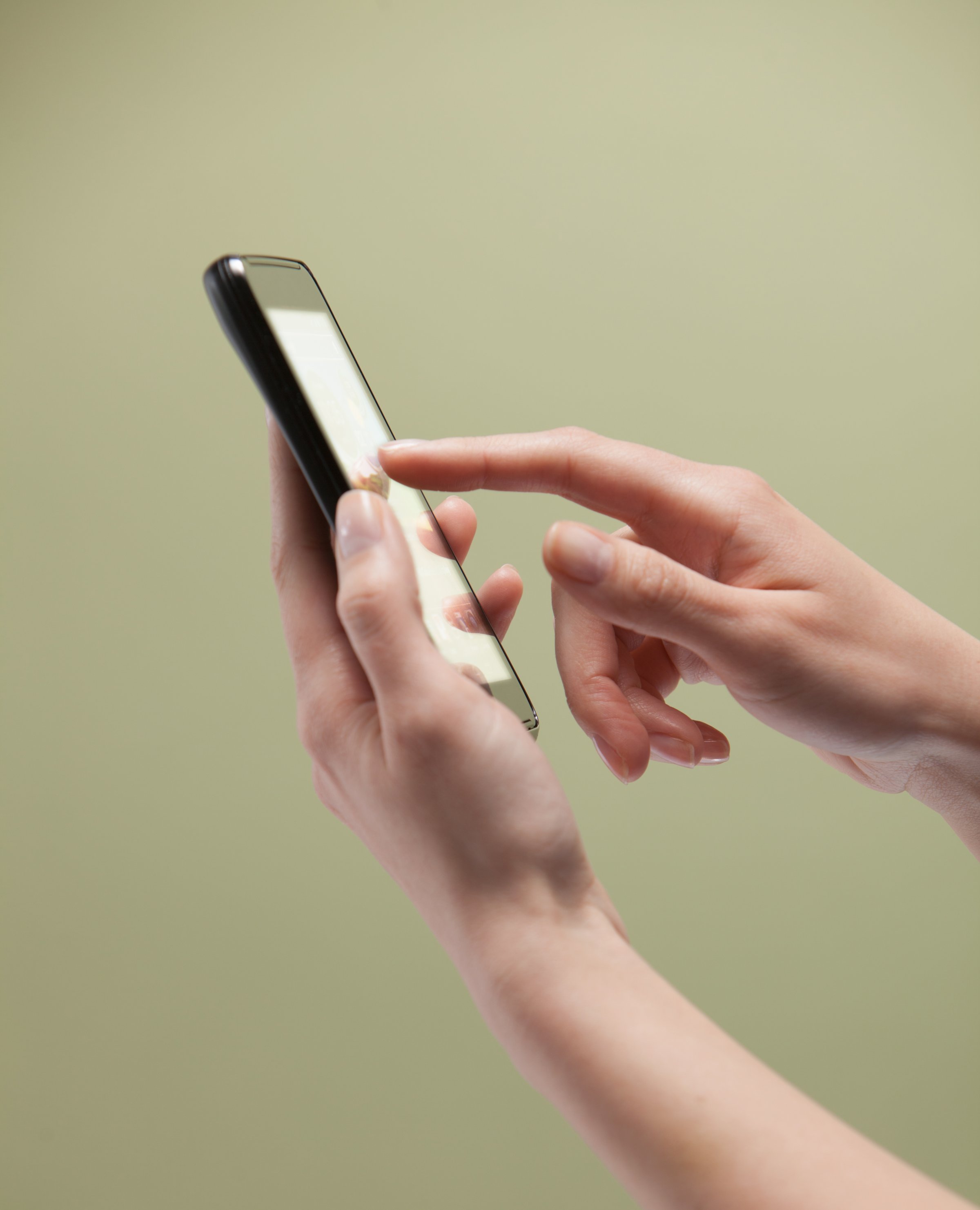
More than 1.8 million smartphones are sold daily and the average American spends well over three hours a day on the phone. We stay plugged in while we eat, sleep, and even while we use the bathroom. It’s safe to say we’re addicted to our phones. But staying connected at all times is taking a serious toll.
Texting destroys your posture.
“Text neck” is a real condition, and it’s not pretty. Peering down at your phone while you text, read, or surf the web puts an unnecessary strain on your spine, according to recent research published in the National Library of Medicine. When standing upright, the average head places 10 to 12 pounds of force on the cervical spine, but just a 15-degree tilt increases that weight to 27 pounds, and a 60-degree one to 60 pounds. The extra spine stress can lead to earlier wear and tear on your spine, and even require surgery in the worst cases.
Your phone could be making you sick.
If your phone is basically your fifth limb, even those who wash their hands regularly could be carrying around a lot more germs than they think. The Wall Street Journal conducted an experiment in which it tested eight random phones from its office. Every single one carried high levels of a bacteria suggesting fecal contamination. Many phones even carry more germs than a toilet seat.
Those earbuds might be damaging your hearing.
Turn down the volume. Thirty-five percent of adults and almost 60 percent of teenagers listen to personal music devices at loud volumes. When more than 30 percent of Americans older than 20 have suffered some loss of high-frequency hearing, those are scary numbers. Whether or not cranking the tunes will actually affect your hearing depends on the individual. Some people have more sensitive ears, and those earbud listeners could notice hearing loss after listening for only a couple hours each day, Time reports. While it all depends on your phone’s volume and how you’re personally affected by sound, the safest bet is to turn down the music.
Texting affects your balance.
You should never text and drive, and you shouldn’t text and walk either. Cell phone and walking-related emergency room visits are on the rise, according to research from Ohio State University. The most common offenders? Sixteen to 25-year-olds. “The role of cell phones in distracted driving injuries and deaths gets a lot of attention and rightly so,” co-author Jack Nasar said in a statement. “But we need to also consider the danger cell phone use poses to pedestrians.”
Texting while walking not only distracts, but can also knock you off balance. Australian researchers examined the speed and patterns of people walking while texting and found that they showed a slower walking speed and that they veered from a straight line. So, while you definitely shouldn’t drive while you text, you shouldn’t walk while you type away either.
Cell phones can hurt relationships.
Even though texting may seem like a quick and easy way to stay connected to the ones you love, research suggests that texting too much can actually hurt your relationship. Brigham Young University researchers found that texting to apologize or resolve conflicts resulted in a lower relationship quality for women. And receiving too many texts left men with a lower relationship quality. But it’s not all bad, expressing affection through texts enhanced the relationship for both men and women. So, go ahead and text over “I love yous” regularly—but leave the arguments and in-depth conversations for the next time you see each other.
You probably lose sleep over your phone.
Almost 75 percent of 18-to-44-year-olds sleep with their phones only an arm’s reach away. Unfortunately, the blue light emitted from electronics, like laptops and cell phones, can have a terrible effect on our sleep. Artificial light at night stops our body from producing the chemicals that make us tired, and instead leaves us feeling more awake, The Huffington Post reports.
Plus, the constant pings, buzzing, and light from incoming texts and emails can hurt our sleep patterns. A Swedish study showed that the feeling of being constantly plugged in can cause stress that cuts into sleep and can even increase the risk of depression in some cases. In other words, the best way to get a good night’s sleep is to keep your phone far away from your bed.
This article originally appeared on RealSimple.com.
More from Real Simple:
More Must-Reads From TIME
- The 100 Most Influential People of 2024
- Coco Gauff Is Playing for Herself Now
- Scenes From Pro-Palestinian Encampments Across U.S. Universities
- 6 Compliments That Land Every Time
- If You're Dating Right Now , You're Brave: Column
- The AI That Could Heal a Divided Internet
- Fallout Is a Brilliant Model for the Future of Video Game Adaptations
- Want Weekly Recs on What to Watch, Read, and More? Sign Up for Worth Your Time
Contact us at letters@time.com